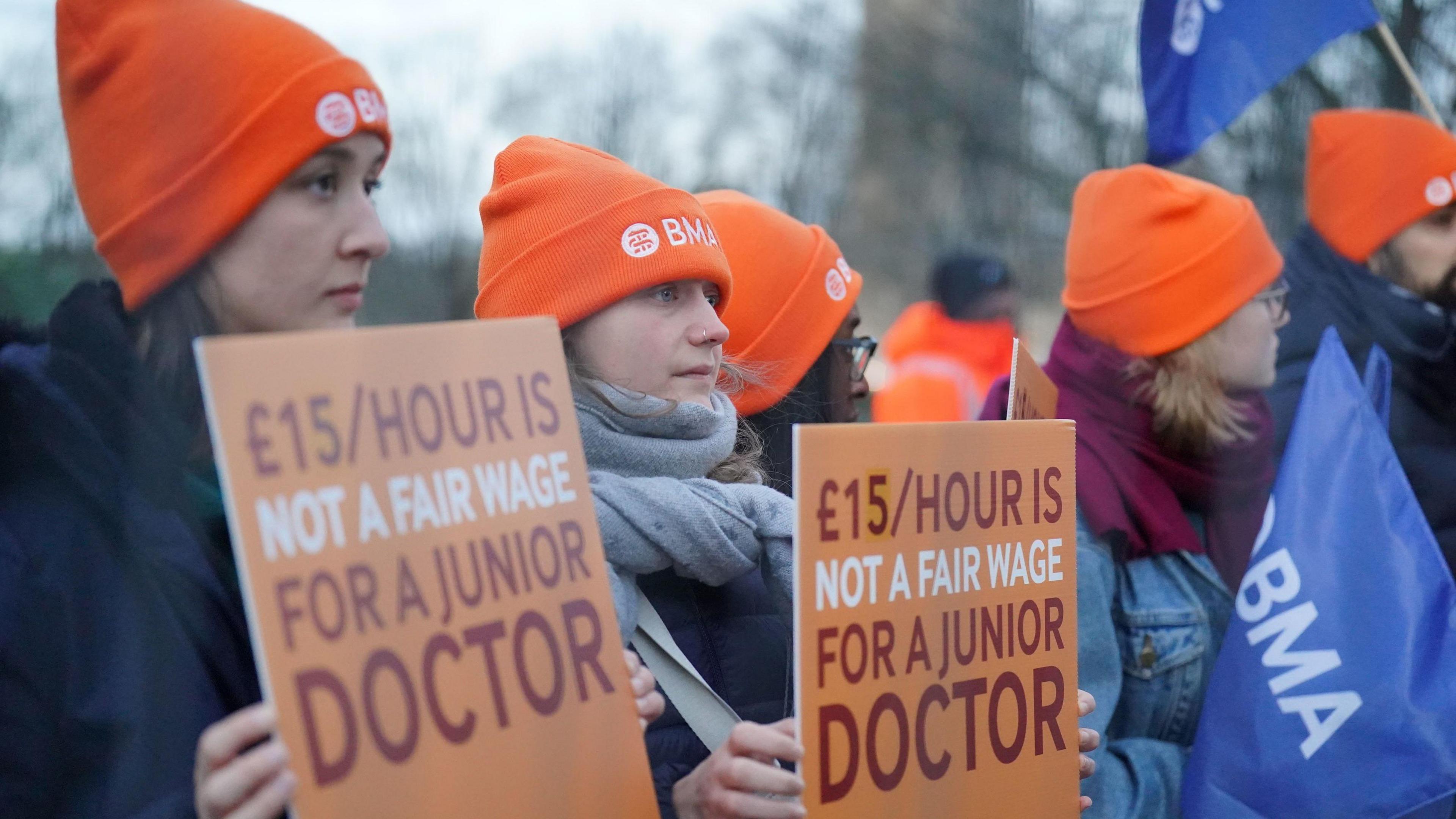Laws on union strike threshold set to be scrapped

Junior doctors are among the public sector workers who recently went on strike
- Published
The government is set to scrap higher thresholds for strike action introduced by the Conservatives.
It is understood Labour will reverse the changes, which took effect in 2017, as part of its planned overhaul of trade union laws.
Legislation to enact the changes will start its journey through Parliament before mid-October, ministers have promised.
Senior Tories have been critical of Prime Minister Sir Keir Starmer over recent pay offers to train drivers and junior doctors, accusing him of being beholden to the unions.
Shadow Home Secretary James Cleverly recently accused the government of being "played by its union paymasters", while Labour said it was merely making good on its election promises.
Ministers start to roll back Tory strike restrictions
- Published6 August 2024
We want same pay deal as drivers, says RMT boss
- Published16 August 2024
The Trade Union Act, passed by the previous Conservative government, introduced a higher threshold for unions to meet to hold legal strike action, by including a minimum 50% turnout requirement.
For sectors such as education, health and transport, 40% of the entire membership has to support action for it to be legal.
The Conservatives said the rules would ensure a "clear and positive democratic mandate" for industrial action, but Labour argues they are an attack on the right to strike.
As first reported by the Telegraph, external, it is understood Labour intends to stick to its pledge of introducing legislation to repeal them within its first 100 days in office.
A Labour source said the government was "turning the page on the Conservatives' failed, scorched-earth approach to industrial relations".
The source added that a "new era of partnership" between unions, employers and government would put the UK in line with "high-growth economies that benefit from more co-operation and less disruption".
The Labour government's new legislation will also get rid of rules introduced by the Conservatives last year limiting strike action by workers including teachers, firefighters and train workers.
Ministers have already told employers not to follow the rules whilst the draft law goes through Parliament.
The proposed rules would have forced train firms to run about 40% of rail services on strike days, with fire services required to crew 73% of fire engines.
But the regulations, which unions argue are unworkable, have never been implemented during a dispute.